Invited Speakers
- Professor / Dr.
Felipe E. Reyes-Lopez - Associate Professor
Keiichiro Koiwai - Associate Professor
Kunlaya Somboonwiwat - Senior Science Research Specialist
Mary Nia M. Santos - Principal Researcher
Saengchan Senapin - Professor of Marie Ecology and Aquaculture
Andrea C. Alfaro - Distinguished Professor
Han-Ching Wang
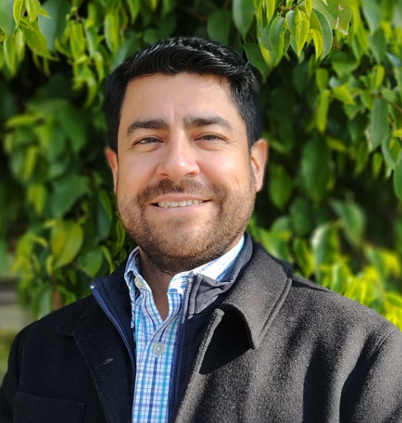
Felipe E. Reyes-Lopez
Research Areas:
My main interest has been focused on the study of animal health status and the modulation of functions and mechanisms against an experimental variable of interest, particularly in teleostean fish. My main lines of research are (i) the activation of the stress response and its implications in the modulation of the immune response both at the systemic and local level; (ii) the host-pathogen interaction in diseases affecting aquaculture; (iii) integrative physiogenomics in fish as a bridge between functional genomics and response phenotype to understand the health status of organisms; and (iv) Crosstalk between mucosa-associated lymphoid tissues (MALT) and exuded mucus.
Brief Biography:
I am Biochemist (2006) and Doctor in Biotechnology (2010). I was a postdoctoral researcher at the Universitat Autonoma de Barcelona (2010-2021). I am currently Assistant Professor at the University of Santiago de Chile (USACH) and Director of the research team in “Fish Health and Integrative Physiogenomics” at the Center of Biotechnology and Aquaculture (USACH). I have 12 years of experience in undergraduate and graduate teaching. I have participated in multiple research projects in Chile, Costa Rica, Spain, Belgium, and initiatives funded by the European Union. I have published 82 scientific articles (37 of them as first and/or corresponding author), mainly in the areas of aquatic sciences, immunology, and microbiology. In addition, I have published three book chapters, and one eBook. I have been a project evaluator for research agencies in Spain, Belgium, Peru, Uruguay, and Chile. I am a member of the Chilean Society of Microbiology, the International Society of Developmental and Comparative Immunology, the European Aquaculture Society, and board member of the International Society of Fish and Shellfish Immunology. I am Editorial Board member for Aquaculture (ELSEVIER), and Comparative Immunology Reports (ELSEVIER).
Personal webpage link:
https://scholar.google.com/citations?user=E3W_qVAAAAAJ&hl=es
https://orcid.org/my-orcid?orcid=0000-0002-5001-457X
https://www.researchgate.net/profile/Felipe-Reyes-Lopez
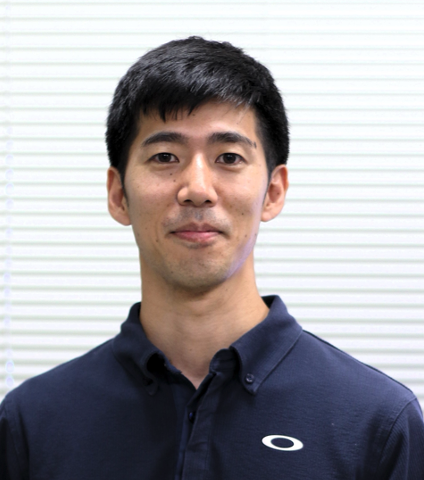
Keiichiro Koiwai
Research Areas:
My research career has been defined by a commitment to advancing marine biosciences through innovative approaches and interdisciplinary collaboration. With a Doctorate in Marine Science and specialization in Aquatic Life Science, I have focused extensively on the immunological and molecular aspects of marine organisms, particularly penaeid shrimp. My long-term goal is to investigate the relationship between microorganisms and marine species. I aim to leverage advanced technologies like MEMS and RNA-seq to understand how microorganisms influence marine organism health and immune responses. This research is crucial for developing sustainable aquaculture practices and preserving marine biodiversity.
Brief Biography:
Keiichiro Koiwai specializes in the immunology of shrimp, fish diseases, and screening strategies of beneficial bacteria for aquaculture. In 2019, he obtained his degree in marine science from Tokyo University of Marine Science and Technology (TUMSAT). During the same year, he worked as a JSPS Postdoctoral Fellow (PD) at Chuo University and received the Encouragement Award from the Japanese Society of Fisheries Science. In 2020, he served as a specially appointed assistant professor at Tokyo University of Agriculture and Technology. From 2021 to 2024, he worked as an assistant professor at TUMSAT. In 2024, he was awarded the Encouragement Award from the Marine Biotechnology Society. Since August 2024, he has been an associate professor at the Institute for Aquaculture Biotechnology at the same university.
Personal webpage link: https://genome-lab.jp/
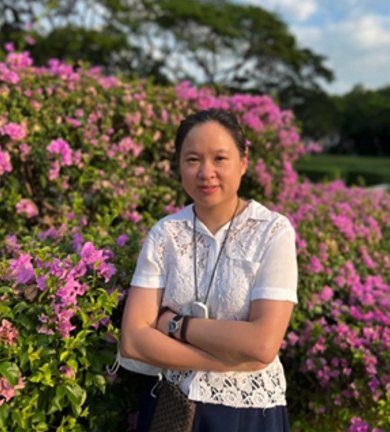
Kunlaya Somboonwiwat
Research Areas:
Shrimp immunology; Small non-coding RNA; Antimicrobial peptide; OMICs-based technology for therapeutics and biomarker development.
Brief Biography:
Dr. Kunlaya Somboonwiwat is an Associate Professor of Biochemistry at Chulalongkorn University, Thailand, and a leading expert in shrimp immunology, molecular biology, and genomics. She holds both her B.Sc. and Ph.D. in Biochemistry from Chulalongkorn University. Dr. Somboonwiwat has built a distinguished career focusing on the molecular mechanisms underlying shrimp immune responses to pathogens. She earned her several prestigious awards, including the M.R. Jisnuson Svasti Young Protein Scientist of Thailand Award and the Outstanding Royal Golden Jubilee Alumni Award.
Dr. Somboonwiwat’s current research focuses on harnessing small non-coding RNAs, such as microRNAs and circular RNAs, to control viral diseases in shrimp. Her recent work has contributed to the understanding of how these molecules regulate immune responses and viral gene expression, opening up new avenues for disease control in shrimp aquaculture. Her contributions to the field have made her a key figure in the development of innovative solutions for shrimp health management and sustainable aquaculture practices.
Personal webpage link: https://www.bc.sc.chula.ac.th/kunlaya-somboonwiwat-associate-professor-ph-d/
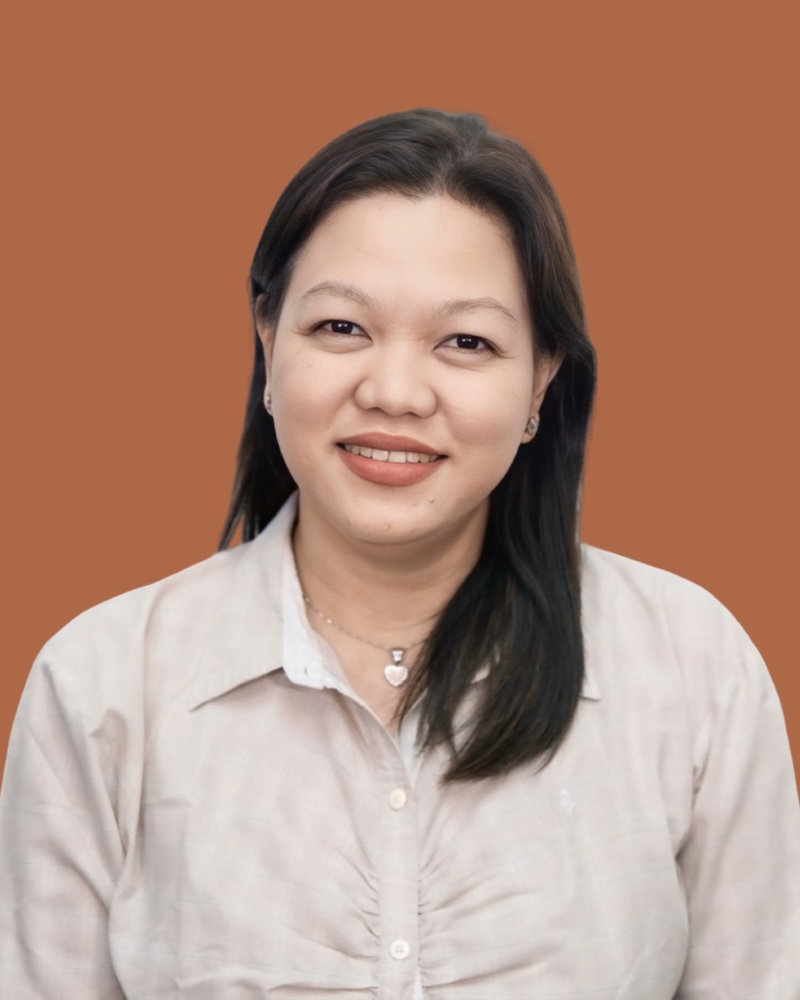
Head, Aquatic Animal Health Section
Mary Nia M. Santos
Research Areas:
Our research group is active in interdisciplinary research collaborations. Currently, our focus is on shrimp bacterial and viral diseases such as acute hepatopancreatic necrosis disease (AHPND) and White Spot Syndrome disease. Using comparative genome analysis, functional characterization and bacterial challenge assays we are investigating the role of the bacterial nanomachine called Type VI Secretion System (T6SS) during shrimp infection of Vibrio spp.-causing AHPND. Also through the Taiwan-Philippines joint research project, we are developing a probiotic bacterium to block the WSSV entry by expressing nanobody, camelid-derived single domain antibodies and double stranded RNA (dsRNAs) against WSSV genes.
Brief Biography:
Nia is a BS Fisheries and MS Biology graduate from the University of the Philippines Visayas. She has a wide research experience in molecular biology, microbiology, biotechnology and aquaculture. She received her PhD in Biotechnology and postdoctoral training at the Academia Sinica Institute of Plant and Microbial Biology. In 2023, Nia has been awarded a Fulbright-Philippine Agriculture Scholarship Program Grant from the William Fulbright Foreign Scholarship Program. It is her goal, as a Balik (Filipino word which means return) Scientist awardee, to contribute to the development of aquaculture research in the Philippines, particularly in the areas of fisheries biotechnology and disease management.
Personal webpage link:
https://orcid.org/0000-0001-6544-0339
https://www.researchgate.net/profile/Mary-Nia-Santos
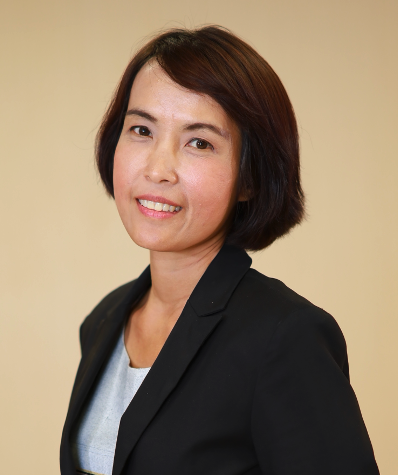
Saengchan Senapin
- National Center for Genetic Engineering and Biotechnology (BIOTEC), National Science and Technology Development Agency (NSTDA), Pratum Thani, Thailand
- Fish Health Platform, Center of Excellence for Shrimp Molecular Biology and Biotechnology (Centex Shrimp), Mahidol University, Bangkok, Thailand
Research Areas:
Dr. Senapin is a molecular biologist with over 20 years of experience in aquatic animal health. Her research focuses on infectious pathogens in fish and shrimp, emphasizing identification, molecular characterization, diagnosis, and host-pathogen interactions. She has studied significant fish pathogens, including TiLV, TiPV, SDDV, LcHV, ISKNV, NNV, Aeromonas, Streptococcus, and Vibrio in tilapia and Asian seabass, as well as IMNV, MrNV, YHV, WSSV, and atypical Vibrio AHPND in shrimp. Recently, her work has expanded to fish vaccination & immunity, and understanding stakeholder perspectives on vaccination practices in aquaculture.
Brief Biography:
Dr. Senapin obtained her Ph.D. in Biochemistry and Molecular Biology from The Australian National University in 2003. She is currently a principal researcher at the National Center for Genetic Engineering and Biotechnology (BIOTEC), part of the National Science and Technology Development Agency (NSTDA) in Thailand. In addition, she serves as an adjunct professor at James Cook University, Singapore, and holds the position of Associate Editor for the Journal of Fish Diseases. With an H-index of 31, she has published over 100 international articles and is recognized as one of the top 2% of scientists in the fisheries field in 2024.
Personal webpage link:
https://science.mahidol.ac.th/research/shrimp.phpcitations?user=hLUaA1gAAAAJ&hl=en
https://orcid.org/0000-0002-5599-4343
https://www.researchgate.net/profile/Saengchan_Senapin
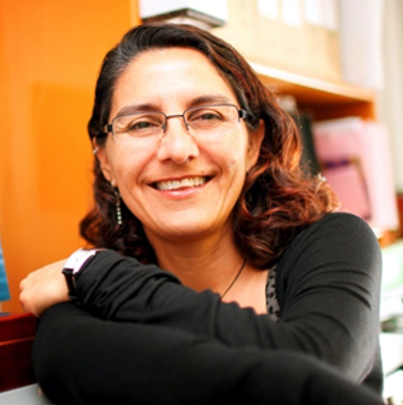
Andrea C. Alfaro
Research Areas:
- Multi-omics approaches to investigate endogenous and exogenous perturbations in marine organisms.
- Biomarker discovery for early diagnostics of health, nutrition, growth and production states in fishery and aquaculture settings.
- Future-proofing our wild and cultivated marine populations: building resilience in changing environments.
Brief Biography:
Professor Alfaro is a leading marine scientist with inter-disciplinary research interests in shellfish and fish ecology and aquaculture. Her research centers on understanding the complex interactions between organisms and their environments, in both natural (field ecology) and controlled (aquaculture) settings. Alfaro leads the Aquaculture Biotechnology Research Group at AUT, which applies innovative approaches (e.g., metabolomics, integrated omics) to understand complex research questions, such as host-pathogen-environment interactions, climate change resilience, and eco-physiological tradeoffs and balances throughout life stages.
Personal webpage link: https://scholar.google.com/citations?user=d-o2q04AAAAJ&hl=en
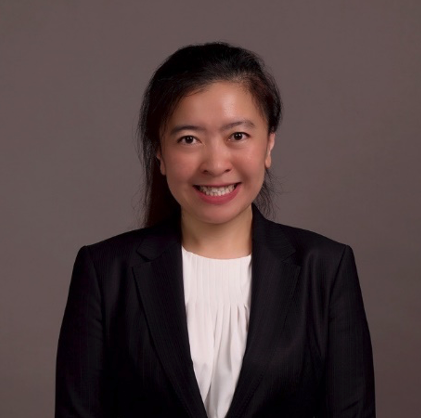
Han-Ching Wang
Research Areas:
Crustacean Immunology, Crustacean Virology, Systems Biology, Multi-omics Analysis
Brief Biography:
Dr. Wang started her career as a shrimp researcher in 2000 as a Master student and continued to obtain her Ph.D. in 2007 from National Taiwan University (NTU), Taiwan. She extensively used proteomics and structural biology to study the pathogenesis of white spot syndrome virus (WSSV) that caused white spot disease (WSD) in shrimp. Dr. Wang joined as a post-doctoral fellow at the Tokyo University of Marine Science and Technology, Japan and later joined National Cheng Kung University in 2008. Her hard work and perseverance, led to her growth in career to becoming a Distinguished Professor. Dr. Wang is recognized as an outstanding young researcher and 2023 World’s Top 2% Scientists and has received several prestigious awards mainly CH Biotech Innovation award, Taiwan and NCKU Excellent Teacher Award from her university. Dr. Wang now is also the leading expert of WOAH reference laboratories for WSD and AHPND. She also serves as one of five board members of the International Society of FSI, the chair of the Nimaviridae study group of the International Committee for the Taxonomy of Viruses (ICTV), a member of the Executive Committee of the Fish Health Section (FHS). Since 2008, Dr. Wang and her team have published over eighty SCI research papers.
Personal webpage link: https://dbbs.ncku.edu.tw/p/404-1153-130909.php?Lang=n
Research NCKU link: https://researchoutput.ncku.edu.tw/en/persons/han-ching-wang
